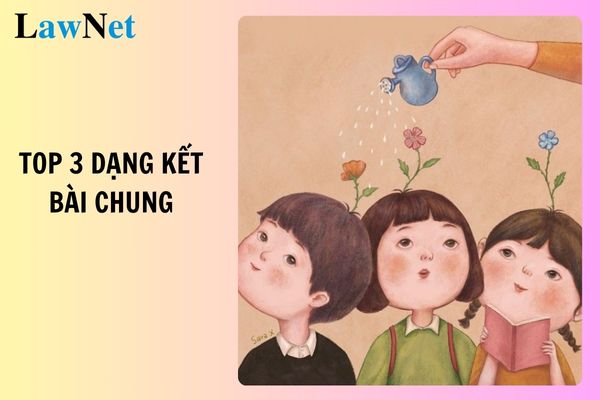What are the 03 common conclusion styles for essays on literary works with specific sample conclusions? Must upper secondary school students in Vietnam distinguish literary works?
What are the 03 common conclusion styles for essays on literary works with specific sample conclusions?
Below are 03 common conclusion styles for essays on literary works with specific sample conclusions:
|
03 common conclusion styles for essays on literary works with specific sample conclusions Common Conclusion Styles: |
*Note: The information is for reference only./

What are the 03 common conclusion styles for essays on literary works with specific sample conclusions? Must upper secondary school students in Vietnam distinguish literary works? (Image from the Internet)
Must upper secondary school students in Vietnam distinguish literary works?
Under Section 3 of the General Education Program for Literature issued with Circular 32/2018/TT-BGDDT, the objectives of the Literature subject at the upper secondary level are stipulated as follows:
- Assist students in continuing to develop the qualities formed in secondary school; broaden and enhance the development requirements of qualities with specific manifestations: bravery, individuality, ideals, and ambitions, preserve and promote Vietnamese cultural values; foster global citizenship spirit.
- Continue to develop competencies formed in secondary education with higher achievement requirements: comprehend both explicit and implicit content of more challenging texts through volume, content, and reading requirements; develop critical thinking in reading comprehension; apply knowledge about literary language features, literary trends, author styles, works, and internal and external elements of texts to develop independent reading competence.
Competently compose argumentative and comprehensive texts (combining expression methods and argumentative operations), following proper procedures, having personal views, and ensuring logic and persuasive power.
Speak and listen flexibly; have the ability to listen and evaluate both the content and expression of presentations; know how to engage with personal views, and individuality, and have an appropriate attitude in debates.
Develop literary competence with requirements: distinguish literary works and works of other art forms; analyze and comment on the features of literary language; differentiate the expressed and implied messages in literature; identify, analyze, and appreciate literary works based on literary stylistics; have a rich imagination, know how to appreciate, receive and evaluate literature; create literary-like products.
Thus, one of the objectives of the Literature subject at the upper secondary level is to help students achieve the competency to distinguish literary works from other art forms.
What are the mandatory literary works for the Literature curricula in Vietnam?
Under Section 5 of the General Education Program for Literature issued with Circular 32/2018/TT-BGDDT, the mandatory and elective literary works are regulated as follows:
- Mandatory Works:
+ "Nam quốc sơn hà" (Ly Dynasty)
+ "Hịch tướng sĩ" by Tran Quoc Tuan
+ "Bình Ngô đại cáo" by Nguyen Trai
+ "Truyện Kiều" by Nguyen Du
+ "Văn tế nghĩa sĩ Cần Giuộc" by Nguyen Dinh Chieu
+ "Tuyên ngôn Độc lập" by Ho Chi Minh
- Mandatory Elective Works:
+ Vietnamese Folk Literature
++ Select at least 4 representative works for 4 genres from the treasure trove of Vietnamese folk stories: legends, fairy tales, fables, humor stories
++ Select at least 3 folk songs on the topics: homeland and country; love, familial affections; people and society (lyric or satirical)
++ Select at least 1 Vietnamese epic
++ Select at least 1 narrative poem from Vietnamese ethnic minorities
++ Select at least 1 cheo or tuong script
+ Written Vietnamese Literature, select at least 1 work from each of the following authors:
++ Nom poetry, argumentative writings of Nguyen Trai
++ Chinese poetry of Nguyen Du
++ Nom poetry of Ho Xuan Huong
++ Nom poetry of Nguyen Dinh Chieu
++ Nom poetry of Nguyen Khuyen
++ Stories and poems by Nguyen Ai Quoc – Ho Chi Minh
++ Short stories, novels by Nam Cao
++ Novels, reports by Vu Trong Phung
++ Poetry by Xuan Dieu before the August Revolution
++ Poetry by To Huu before and after the August Revolution
++ Short stories, essays by Nguyen Tuan
++ Plays by Nguyen Huy Tuong
++ Plays by Luu Quang Vu
+ For Foreign literature, select at least 1 work for each of the following literary backgrounds: English, French, American, Greek, Russian, Japanese, Chinese, and Indian.

